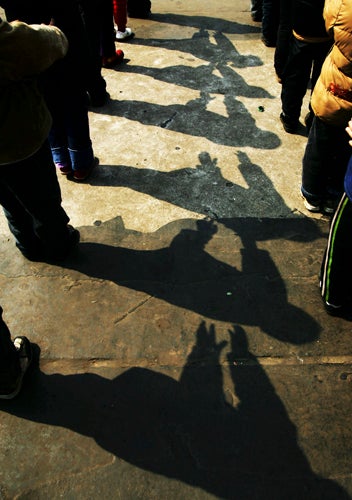
What courses? Social work; health & social care; child & adolescent studies; community studies; counselling and psychology in community settings; youth and community development; you and community work; working with children, young people and families.
What do you come out with? BA or BSc in social work, with a diploma in social work. To be professionally qualified you need to have completed a minimum of 200 days in a practice setting alongside your degree.
What's it about? Learning how to help people who are finding it hard to cope and how to pick up on serious problems such as child abuse in families. You’ll also gain an understanding of social processes such as poverty, unemployment and poor health which play such a large part in the lives of many social service users. You learn what makes people tick, how to handle them, and why they get into the situations they do. Law, criminal justice, social policy, psychology, child development, anti-discrimination, social work and interviewing skills are the main components. You’ll also develop vital skills such as active and purposeful listening as well as learning how to develop arguments and record accurately, clearly and accessibly within organisational time-scales. Students usually specialise in their final year – perhaps with children, or adults with special needs. Joint honours courses allow students to study areas such as community development, health care and youth studies.
Study options: Three years at most, four in Scotland. Courses are often available part-time for those already working in the field, and some offer work-based routes. Most universities integrate the professional diploma into the undergraduate course. All combine end-of-year, or end-of module, exams with continuous assessment, including portfolio work, practice study and essays. Students are expected to complete 200 days of placements, which is usually split into 80 days in the second year and 120 in the third. The focus on practice is common across institutions.
What will I need to do it? Institutions tend to request that students have had some kind of engagement with issues that face social workers. Brunel asks for six months relevant experience from standard entrants. Huddersfield asks for at least 280 UCAS points, or BBC at A-level, but offers can be as low as 160 points/DDE. Bath and Brunel both ask for BBC. You’ll also be asked to attend an interview and you can almost certainly expect a written test at interview too.
What are my job prospects? Job prospects are brilliant as there's a huge shortage of social workers. Most go into local authorities, and many are employed before they leave the course due to their placement work. According to The Times’ Good University Guide 2012, as much as 66 per cent of graduates go straight into graduate-level employment, with decent starting salaries averaging £24,655.
Where’s best to do it? Bath came top of the Complete University Guide 2012, followed by Lancaster, York and Keele. Students at Winchester said they were most satisfied with their course however, followed by Bolton, Brighton and Robert Gordon.
Relates courses: Health and social care; psychology; sociology; criminology; nursing.
Subscribe to Independent Premium to bookmark this article
Want to bookmark your favourite articles and stories to read or reference later? Start your Independent Premium subscription today.

Join our commenting forum
Join thought-provoking conversations, follow other Independent readers and see their replies